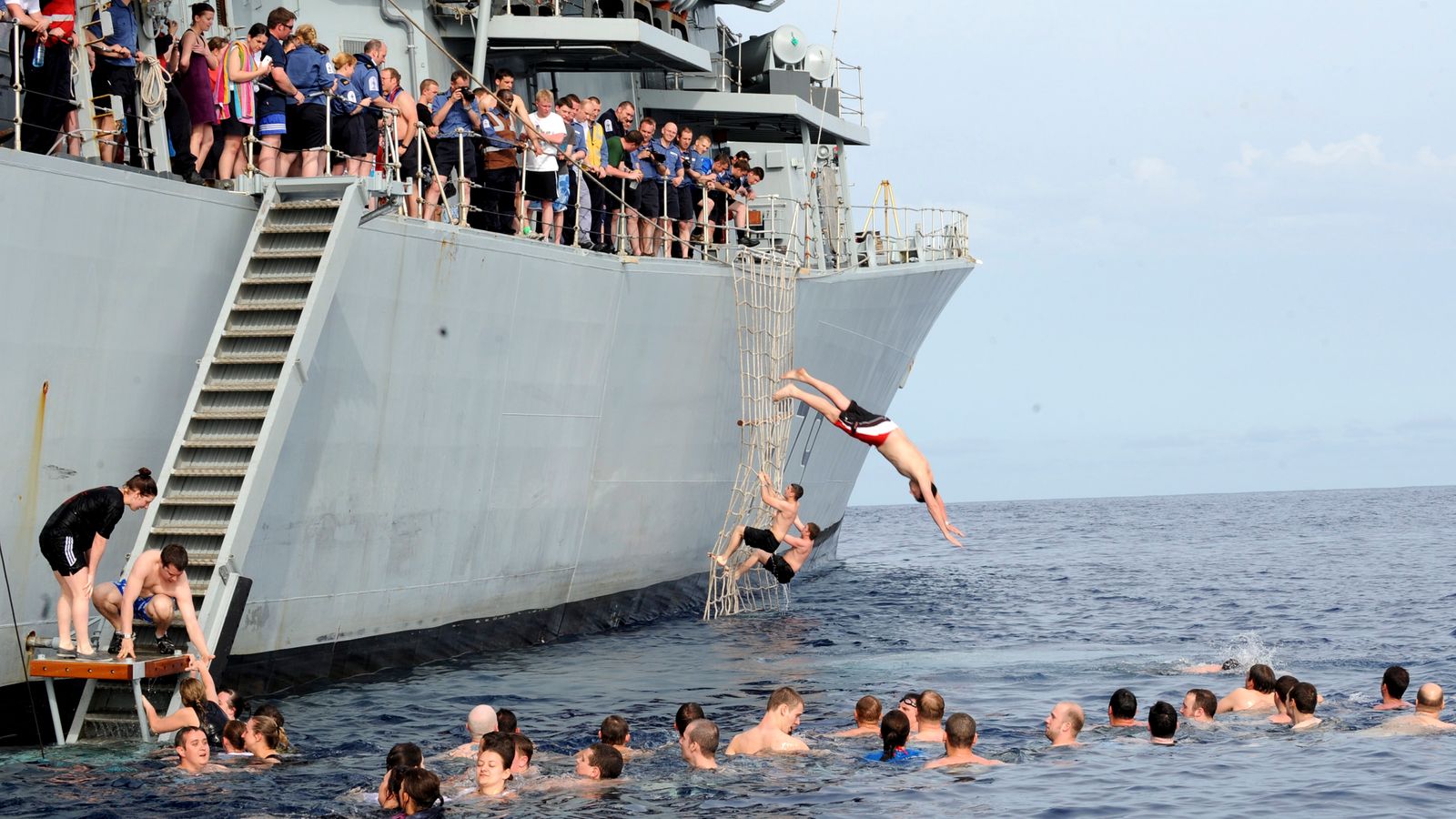Anyone seeking to join the Royal Navy will no longer need to prove they can swim in what one defence source called a “desperate” relaxing of standards to tackle a recruitment crisis.
But a Royal Navy spokesperson pushed back on the criticism, saying standards were not being lowered because all recruits would still be required to pass a swim test during training.
It just means that non-swimmers or weak swimmers no longer need to take lessons in their own time before signing up – something that could have turned prospective candidates off.
The source, however, said there was concern about the change to entry requirements, which meant there would no longer be a 30-minute swim test prior to being recruited.
“In a sign of true desperation to increase recruitment numbers, being able to swim will no longer be an entry requirement to join the Royal Navy,” the source said, requesting anonymity.
Navy chiefs have been under pressure to improve recruitment figures after a serious drop last year, as revealed by Sky News.
Grant Shapps, the defence secretary, said in February the situation was improving, with applications to join the navy at an eight-year high.
But the source said there were worries internally about standards being lowered.
Tap here to follow the Sky News Daily wherever you get your podcasts
On swimming, the source said applicants in future will be able to “self-declare” they can swim.
If it transpires they are not able to pass the Royal Navy Swim Test they will remain in Phase 1 basic training while they receive swimming lessons.
The source said this meant such individuals would be on the payroll – funded by the taxpayer – and boosting recruitment numbers but without moving quickly on to the next phase of becoming deployable sailors.
The navy may also need to find more swimming instructors as a result of the change.
Read more:
Nuclear sub whistleblower speaks
Support sailors vote to strike
‘It’s quite literally a race to the bottom’
The source said: “I absolutely get that there is a growing issue around young people being able to swim and therefore, maintaining the swim test could be seen as reducing the ‘pool of eligible candidates’, but at what point do we say enough is enough?”
Asked how the change had gone down internally, the source said: “Outrage, unadulterated utter outrage… It’s a race to the bottom – literally the bottom.”
The source said: “Are they [the navy] really thinking about what’s best for the recruit? Recruits who can’t swim will need additional training and therefore their ‘working days’ in training will be longer. Surely avoiding this by learning to swim before joining is the best for everyone – including the taxpayer?
“Also, what’s the use of ‘speeding-up’ recruitment for the very few, to just slow them down in training?
“What we need is ‘gains to the trained’ strength – that means passing out training quickly, fully prepared for the frontline.
“This is just spin, a distraction – they’re desperate.”
‘The swimming ability required has not changed’
The Royal Navy spokesperson said: “All Royal Navy and Royal Marine candidates are required to successfully pass the swim test to be able to pass out of Phase 1 training and the level of swimming ability required has not changed.
“Recruitment and retention are absolute priorities, which is why we are introducing a range of measures to speed up recruitment.
“These changes are to reduce the delay for candidates that are eligible to join, while retaining the same level of swimming ability.”

